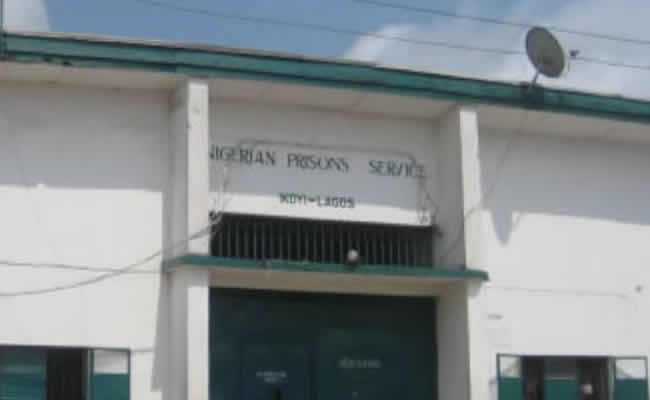
NIGERIA’S prisons are overrunning with inmates. While thousands of them are awaiting trial inmates, others are either serving their jail terms or have been sentenced to death. As of July 2022, the number of inmates on death row in custodial centres across the country was approximated at 3,145. The Nigerian Correctional Service noted that 3,084 were men while 61 were females. Over time, this has made the decongestion of the correction centres a nearly impossible task.
Prison congestion is being fuelled by the laborious justice system and the indiscriminate arrest of innocent persons by security agents, especially police officers. The effort of state governors, state chief judges and the Minister of Justice to decongest the prisons through regular release of innocent persons incarcerated unjustly is not systematic. A report in this newspaper said the Federal Government and states pardoned only 707 inmates throughout the country in 2022.
Really, many lawyers and human rights activists have consistently expressed concern over the fate of the convicts, as governors refuse to sign their death warrants, leading to the rising number of inmates on death row. Some of them have suggested the conversion of the death sentence to life imprisonment. Others argue that if the governors are unwilling to sign the warrants, capital punishment should be expunged from the constitution. A Senior Advocate of Nigeria, Femi Falana, argues that if a convict is kept on the death row for too long, it constitutes torture.
Despite these complaints by several stakeholders over the congestion of the facilities, the number of inmates there continues to rise. The NCoS says that as of January 30, there were a total of 74,059 inmates in the country, comprising 51,567 awaiting trial and 21,961 convicted inmates. Of this, 72,475 were male and 1,584 female inmates. The total number of convicted inmates was 22,492. Convicted male inmates stood at 22,088 and female inmates, 404. This is 30 per cent of the entire population of inmates in the country.
Crimes like murder, manslaughter, kidnapping, and homicide attract the death penalty. When the judges give these orders, the governors are still required to sign the warrants before execution can be carried out. The governors, whose duty it is to sign the death warrants, have been shying away from that responsibility over time, thereby worsening the congestion at the already overflowing prisons. They hide behind sentiments and political correctness for their failure to sign the warrants. This is not the way to go.
Recently, the Minister of Interior, Rauf Aregbesola, urged governors to sign the death warrants of the over 3,000 convicts awaiting execution, especially those whose appeals had been exhausted and were not mounting challenges to their convictions. This, according to him, is part of the measures to decongest prisons nationwide.
The minister enumerated three paths to decongest prisons, saying governors could accelerate the wheels of justice as many inmates had been in custody for a period longer than the maximum sentence their alleged offences carry, which he described as a miscarriage of justice. It is worthy of note that when Aregbesola was governor of Osun, he was guilty of not signing any death warrant.
After the call by Aregbesola, NGO Carmelite Prisoners’ Interest Organisation noted that it was unfair and would amount to a violation of the right to life. The group argued that capital punishment violated the African Union moratorium on executions. It said it would be a miscarriage of justice to sign the death warrant of convicts while repentant insurgents and bandits who commit more horrible crimes were ignored or even granted amnesty.
The death penalty is one of the most controversial and hotly debated topics in the world. Several groups note that it is barbaric and inhumane. Opponents of the death penalty often equate it with murder, pointing out that it does not lower homicide rates, and feel the end cannot justify the means—especially when individuals are wrongly convicted.
The list of nations that have abolished or suspended capital punishment is growing but Nigeria is yet to consider that which means, the onus is on the governors to do the needful.
The Death Penalty Information Centre says that more than 70 per cent of the world’s countries have abolished capital punishment in law or practice. In July 2022, Kazakhstan and Papua New Guinea are the latest countries to outlaw it. Their laws abolishing capital punishment went into effect on December 29, 2021, and January 22, 2022, respectively.
Data from Amnesty International states that at the end of 2021, 108 countries (and growing) had abolished the death penalty in law for all crimes; 144 countries had abolished the death penalty in law or practice, 28 countries had effectively abolished the death penalty by not executing anyone in the past 10 years, and 55 countries still retained the death penalty for ordinary crimes.
But proponents of the death penalty often view it as an unpleasant, but necessary way to keep society safe from those who commit the most heinous crimes.
Although former Governor Seriake Dickson of Bayelsa State and Governor Simon Lalong of Plateau State repeatedly stated that they would not fail to sign the death warrant of convicted kidnappers, there has been no record of them doing so. The only governor who in recent Nigerian history signed a death warrant was former Governor of Edo State, Adams Oshiomhole. This was greeted with a lot of criticism from various quarters of society.
The NCoS says the governors are faced with three options – to sign the death warrants of those who have exhausted their rights of appeal, commute their death sentence to life imprisonment or grant them pardon. Until Nigeria expunges Section 33, which legalises the death penalty from the constitution, governors will have to shun sentiments and summon the will to adopt of the options.





